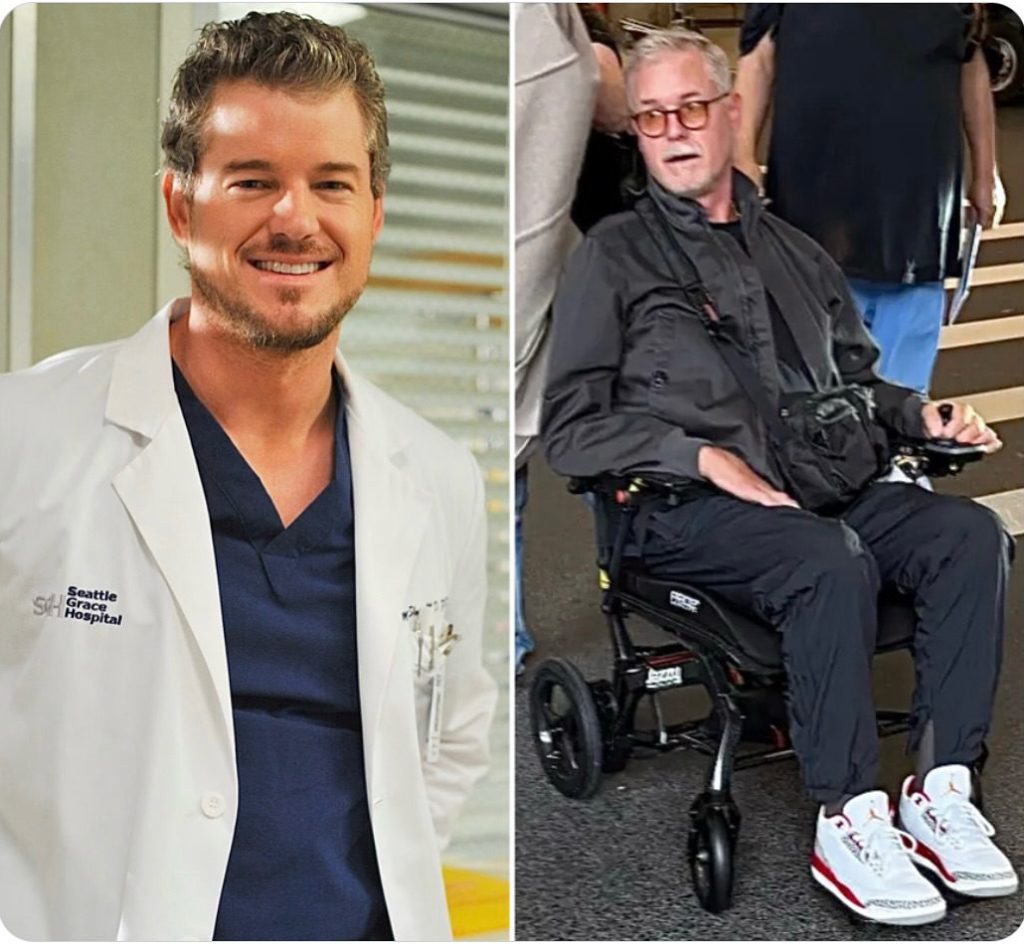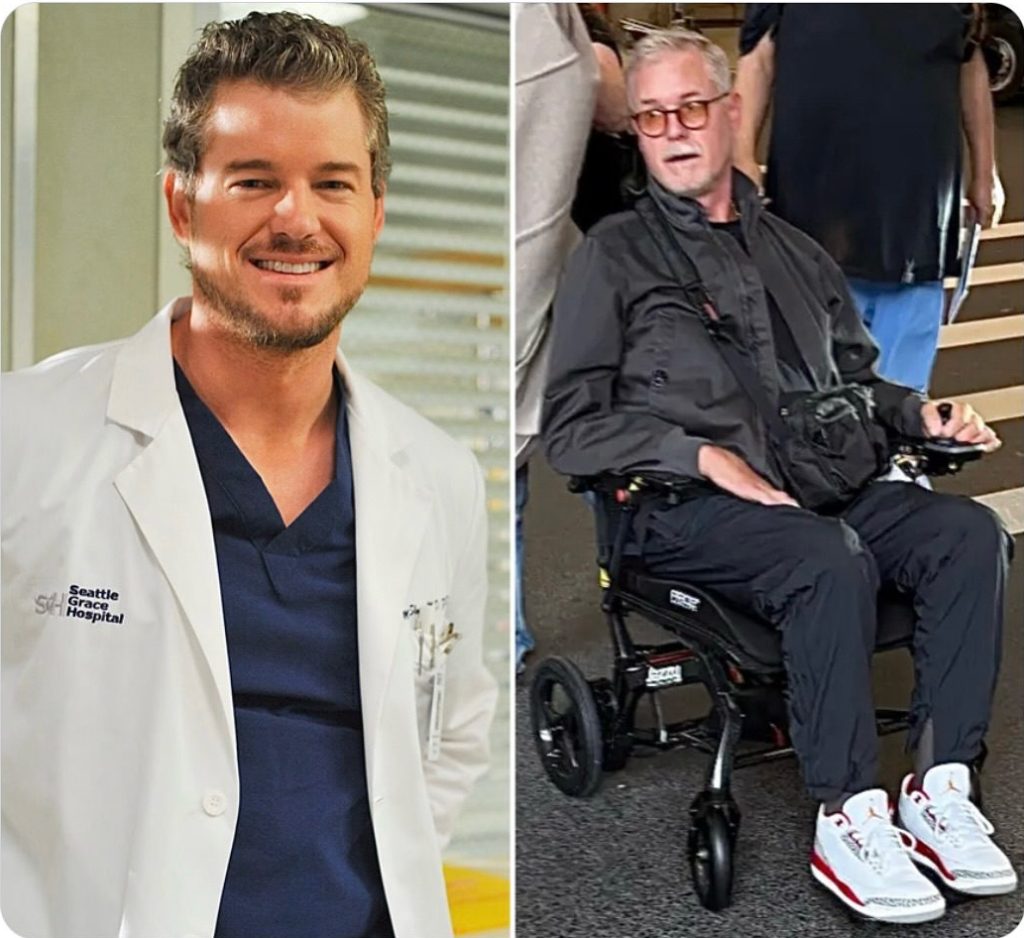“Grey’s Anatomy” & “Euphoria” Star Eric Dane Loses Ability to Walk After ALS Diagnosis — His Brave Story
It’s the kind of news that sinks into your chest, heavy and impossible to shake. In April 2025, Eric Dane—whom many know as Dr. Mark Sloan in Grey’s Anatomy or Cal Jacobs in Euphoria—publicly revealed he had been diagnosed with ALS, also known as Lou Gehrig’s disease. From that moment forward, what seemed like a distant tragedy became painfully real: the disease is rapidly altering his life, and he can no longer walk on his own.
In a heartbreaking interview on Good Morning America, Dane shared how ALS had already stolen function from his right arm. He said his left side was beginning to weaken too. “I have one functioning arm,” he revealed, adding that what had once been strong was slipping away. He described waking up each day with the shocking realization that, yes, this is happening. “It’s not a dream,” he told Diane Sawyer, breaking down in tears as he said, “I don’t think this is the end of my story.”

The progression has been swift and brutal. For Dane, a fall in his kitchen earlier this year resulted in a head injury and stitches—one of many moments where his body failed him in small, terrifying ways. He’s spoken about snorkeling with his daughter and realizing he couldn’t swim back. She dragged him to safety—and in that moment, the world changed. Even as mobility slipped away, Dane insisted he would keep working, keep showing up, keep fighting.
ALS is merciless. Nerve cells responsible for movement degenerate, muscles waste away, and progressively, people lose the ability to walk, swallow, speak, even breathe on their own. There is no cure, and the average life expectancy is often measured in years rather than decades. Yet Dane’s fight isn’t over—he participates in clinical studies, leans on medical experts, and clings to hope. In his interview, he praised his doctors for giving him confidence and direction amid uncertainty.
The emotional toll is profound. Dane speaks openly about grief over losing abilities once taken for granted. The fear that he might not walk. The loss of independence. The impact on his children, his family. He’s honest about how ALS feels—not like a disease you fight in isolation, but one you learn to live beside when you have no choice.

Still, amid the loss, he shows strength. He appeared at his first red carpet since the diagnosis, wearing sunglasses but not hiding. He’s committed to speaking out about ALS, advocating for better clinical trials and funding through awareness groups and foundations. Friends and co-stars have rallied behind him; Jesse Williams called him a brother when Dane had to skip a Grey’s Anatomy reunion at the Emmys. His fans, too, have flooded social media with love and encouragement.
In interviews he says he still feels that spark when he’s working. The set keeps him alive in more ways than one—it forces a rhythm, a purpose, a reason to push forward. He doesn’t hide his vulnerability, but he refuses to let it define him. His story is no longer just about a career in medicine or television or drama — it’s become a test of spirit, a lesson in courage for anyone who’s ever faced a body that betrays them.
His path ahead will be painful. The losses will come—first more strength, then perhaps speech, then mobility. But there is dignity in how he’s handling it. He wakes every day knowing everything has changed, yet he still climbs out of bed. He still fights. He still hopes. And for many who love his work or simply admire human resilience, his story is both a heartbreak and an inspiration.



